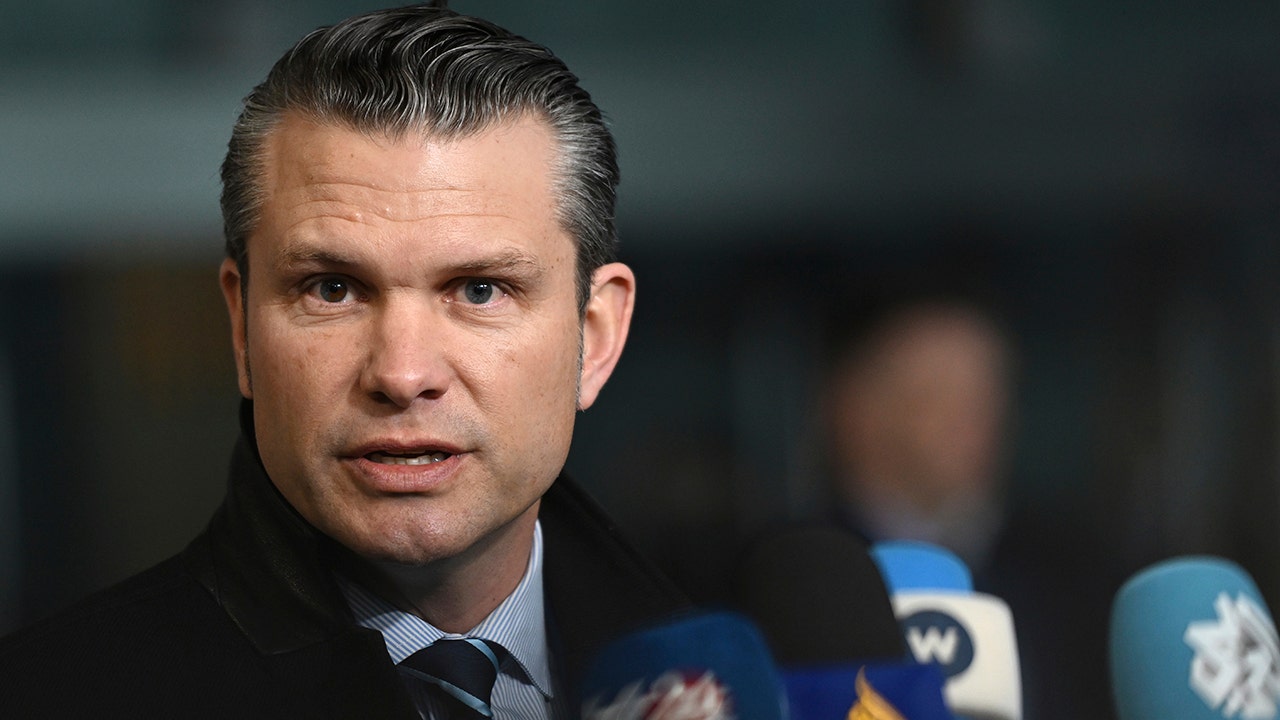Politics
‘No betrayal’ in Trump move toward Ukraine war negotiations, Hegseth says

1. A Strong Defense of Trump’s Approach
Pete Hegseth, a prominent figure in U.S. political circles, recently defended former President Donald Trump’s approach to negotiations with Russia regarding the Ukraine conflict. Speaking at a press conference during his visit to NATO headquarters in Belgium, Hegseth emphasized that Trump’s actions were not a betrayal of Ukraine. Hegseth’s defense came in response to concerns that Trump’s negotiations with Russian President Vladimir Putin might sidestep Ukrainian involvement, potentially undermining Kyiv’s interests. Hegseth argue that Trump’s move was a strategic step toward ending the war, reflecting a broader global desire for peace. He highlighted Trump’s renowned negotiation skills, suggesting that Trump could bring both Russia and Ukraine to the negotiating table. This stance aligns with Trump’s campaign rhetoric, where he often portrayed himself as a deal-maker capable of resolving complex international conflicts.
2. The Context of the War and Trump’s Stance
The conflict between Russia and Ukraine began in February 2014, when Russia annexed Crimea, and has since seen periods of relative calm punctuated by intense fighting, notably escalating in February 2022. Trump, during his presidential campaign, claimed he could have prevented the 2022 escalation and vowed to end the war if re-elected. His recent telephone call with Putin, followed by a separate conversation with Ukrainian President Volodymyr Zelenskyy, indicates Trump’s active engagement in seeking a diplomatic resolution. These actions suggest a continuation of Trump’s campaign narrative, positioning him as a leader who can achieve what others cannot. By engaging both leaders, Trump aims to leverage his negotiation prowess, potentially meeting Putin in person, possibly in a neutral location like Saudi Arabia, to facilitate peace talks.
3. Trump’s Negotiation Skills Take the Spotlight
Trump’s negotiation skills were central to Hegseth’s defense, with Hegseth praising Trump as the world’s best negotiator. This reputation, built on Trump’s business career and presidential dealings, positions him as a unique figure capable of bringing adversarial parties together. Trump’s ability to communicate directly with both Putin and Zelenskyy underscores his confidence in personal diplomacy, often a hallmark of his leadership style. Critics argue that such an approach risks marginalizing Ukraine’s interests, but Trump’s supporters see it as pragmatic realism necessary to end the war. The potential meeting with Putin highlights Trump’s preference for direct engagement, aiming to bypass bureaucracy and achieve swift results, though success remains uncertain.
4. Practical Realism vs. Ideological Goals
Hegseth’s realism was evident in dismissing the goal of restoring Ukraine’s pre-2014 borders as unachievable. While this stance is pragmatic, recognizing current geopolitical realities, it contrasts sharply with Ukraine and its allies’ aims to reclaim lost territories. Hegseth warned that pursuing this objective would prolong the war, causing more suffering. This approach prioritizes ending the conflict over territorial restoration, reflecting a utilitarian view where immediate peace may require compromising on territorial integrity. The U.S. and NATO must balance support for Ukraine with the practicalities of negotiations, raising ethical questions about when to compromise for peace.
5. Ukraine’s Reaction and the Broader Implications
President Zelenskyy’s response to Trump’s initiatives has been cautious optimism, suggesting openness to Trump’s terms for a security partnership. However, this stance may reflect pragmatism rather than enthusiasm, as Ukraine seeks to maintain international support while ensuring its interests are represented. The broader international community is divided, with some viewing Trump’s involvement as a potential catalyst for peace, while others fear it could legitimize Russian actions or weaken Western unity. These reactions highlight the delicate balance required in such negotiations, where each misstep could have far-reaching consequences for global stability and alliances.
6. The Path Forward and Global Implications
Moving forward, the success of Trump’s diplomatic efforts hinges on balancing Ukraine’s sovereignty with the practicalities of ending the war. The U.S. and NATO face challenges in supporting Ukraine while engaging with Russia, requiring careful strategy to maintain unity. Long-term implications involve not just regional stability but also global power dynamics, with potential shifts in alliances and influence. The outcome could redefine how future conflicts are resolved, either as a model for negotiation or a cautionary tale of compromised principles. As the situation evolves, the international community will closely watch whether Trump’s involvement leads to lasting peace or a precarious stalemate.


















